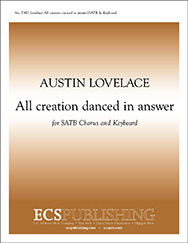- |
User Links
Brethren, We Have Met to Worship

Brethren, we have met to worship
Author: George AskinsTune: HOLY MANNA
Opening Hymns
Published in 254 hymnals
Printable scores: PDFPlayable presentation: Lyrics only, lyrics + musicAudio files: MIDI, Recording
Representative Text
1 Brethren, we have met to worship
And adore the Lord our God;
Will you pray with all your power,
While we try to preach the Word?
All is vain unless the Spirit
Of the Holy One comes down;
Brethren, pray, and holy manna
Will be showered all around.
2 Brethren, see poor sinners round you
Slumb'ring on the brink of woe;
Death is coming, hell is moving,
Can you bear to let them go?
See our fathers and our mothers,
And our children sinking down;
Brethren, pray and holy manna
Will be showered all around.
3 Sisters, will you join and help us?
Moses' sister aided him;
Will you help the trembling mourners
Who are struggling hard with sin?
Tell them all about the Savior,
Tell them that He will be found;
Sisters, pray, and holy manna
Will be showered all around.
4 Let us love our God supremely,
Let us love each other, too;
Let us love and pray for sinners,
Till our God makes all things new.
Then He'll call us home to heaven,
At His table we'll sit down;
Christ will gird Himself, and serve us
With sweet manna all around.
Baptist Hymnal, 1991
Author: George Askins
George Askins was born in Ireland. He immigrated to the United States as an adult. He was a Methodist and became an itinerant preacher for the Baltimore Conference in 1801. He was appointed to other circuits as well, mostly in Maryland, Virginia, and Kentucky. He died in Frederick, Maryland 28 February 1816. Dianne Shapiro from The Makers of the Sacred Harp by David Warren Steel with Richard H. Hulan, University of Illinois Press, 2010 Go to person page >Text Information
| First Line: | Brethren, we have met to worship |
| Title: | Brethren, We Have Met to Worship |
| Author: | George Askins |
| Meter: | 8.7.8.7 D |
| Language: | English |
| Notes: | Swahili translation: See "Ndugu tumekutanika hapa" by M. G. Mutsoli |
| Copyright: | Public Domain |
| Liturgical Use: | Opening Hymns |
For Leaders
Text:
The author of this hymn has not been positively identified. It has been traditionally attributed to George Atkins, but no further information has been found about him or the text. The five stanzas of this text first appeared in print in the early nineteenth century. The fourth stanza (“Is there here a trembling jailer”) is often omitted. The final two lines of each stanza, are based on these lines: “pray, and holy manna will be showered all around,” which may be a reference to the story of God providing manna to feed the Israelites in the wilderness.
One issue with this text is the gender-specific language, particularly the emphasis on “brethren” in the first two stanzas, though the third stanza helps balance the wording by addressing “sisters.” One solution used by some hymnals is the substitution of “Christians” in place of “brethren” and “sisters.” The fourth and fifth stanzas are less affected by this.
Tune:
The tune HOLY MANNA is traditionally attributed to William Moore, though just as with the text, this is not beyond doubt. Moore published the earliest known instance of this tune in his Columbian Harmony in 1825. HOLY MANNA is a pentatonic, folk-like tune and can be sung either at a moderate tempo in a four-four pattern or at a quick tempo with a cut-time meter. The tune name comes from the reference to “holy manna” in each stanza of the text.
When/Why/How:
This hymn may be used as a call to worship, as in “Christians, We Have Come to Worship,” which contains a choral opening sentence from the first two lines of the text. A longer choral call to worship blends “Brethren, We Have Met to Worship” and “Come, Christians, Join to Sing” in “Come and Worship.” The later stanzas could be used after a sermon on evangelism as a call to action, as in the simple choral setting of this text to its traditional tune, “HOLY MANNA,” or a piano postlude, such as in “The Church Pianist's Library, Vol. 5.”
Tiffany Shomsky, Hymnary.org
Timeline
Arrangements
Media
- MIDI file from Baptist Hymnal 1991 #379
- Audio recording from Baptist Hymnal 1991 #379
- MIDI file from The Cyber Hymnal #622
- Audio recording from Glory to God: the Presbyterian Hymnal #396
- Audio recording from The Southern Harmony, and Musical Companion (New ed. thoroughly rev. and much enl.) #103
- Audio recording from The Southern Harmony, and Musical Companion (New ed. thoroughly rev. and much enl.) #103
- MIDI file from The Southern Harmony, and Musical Companion (New ed. thoroughly rev. and much enl.) #103
- Audio recording from Trinity Hymnal (Rev. ed.) #381


 My Starred Hymns
My Starred Hymns







